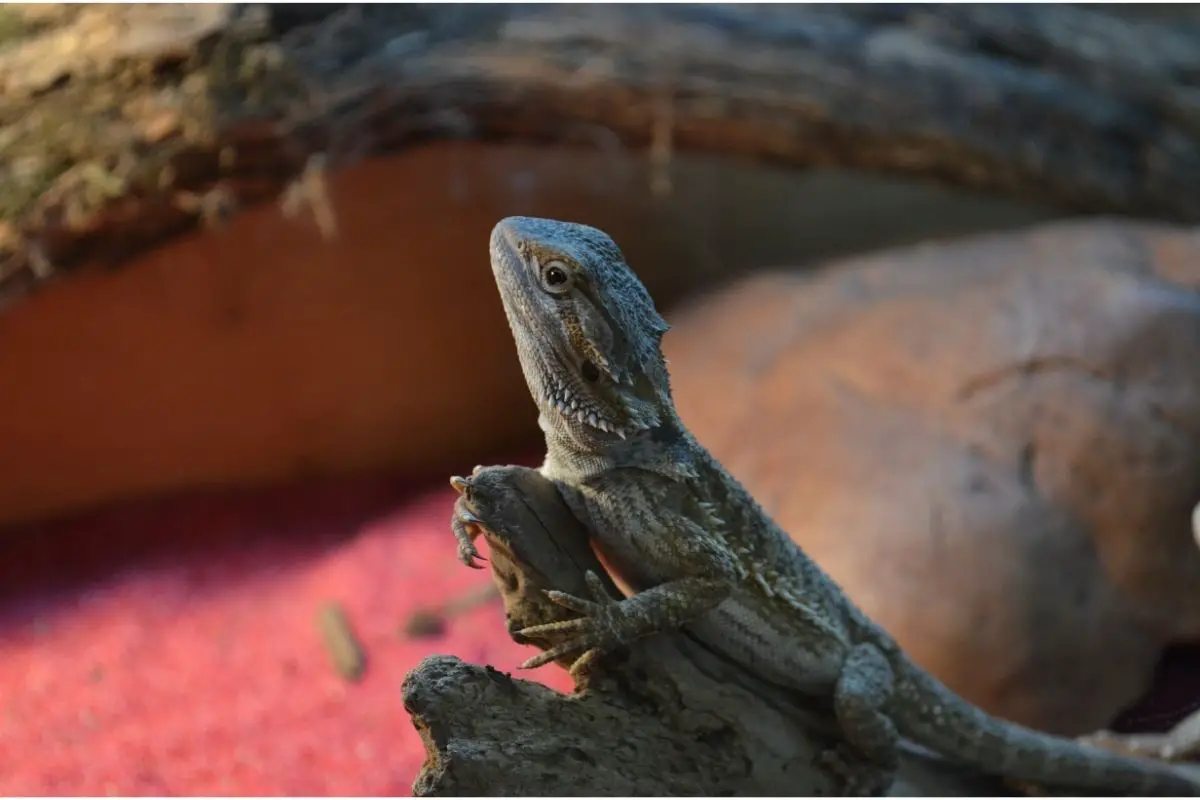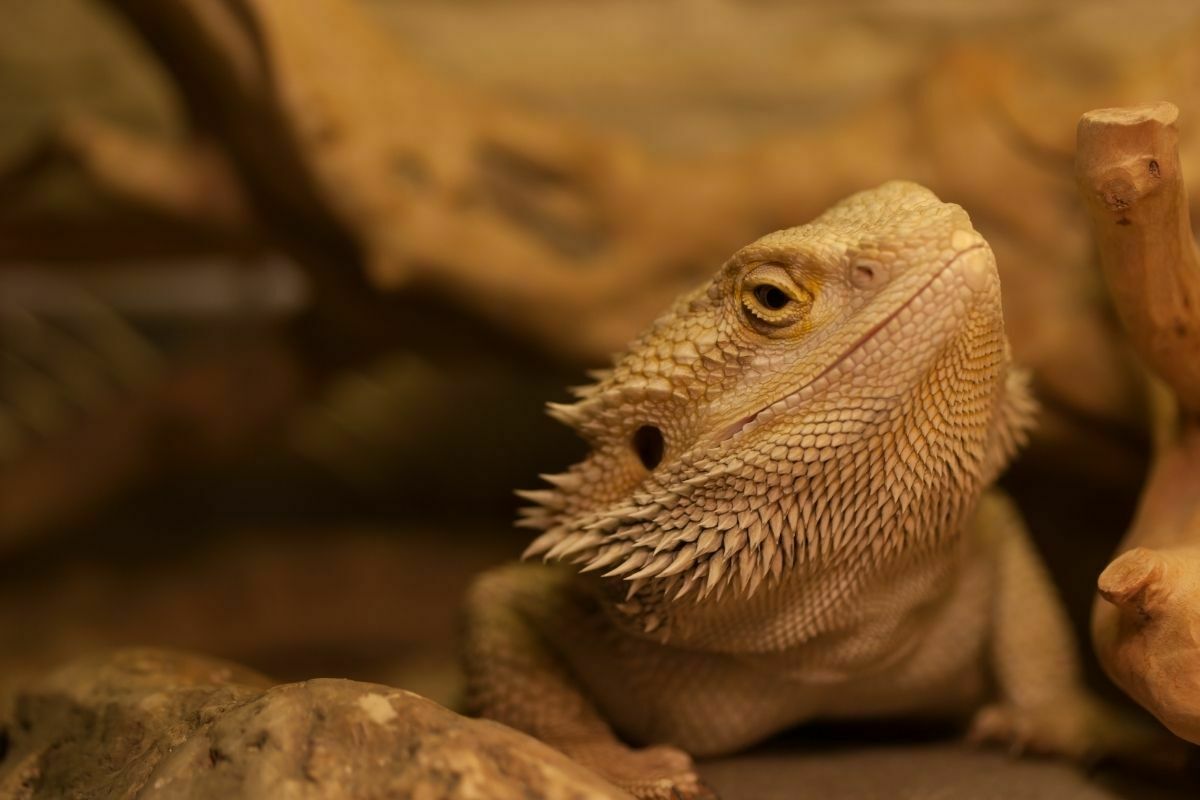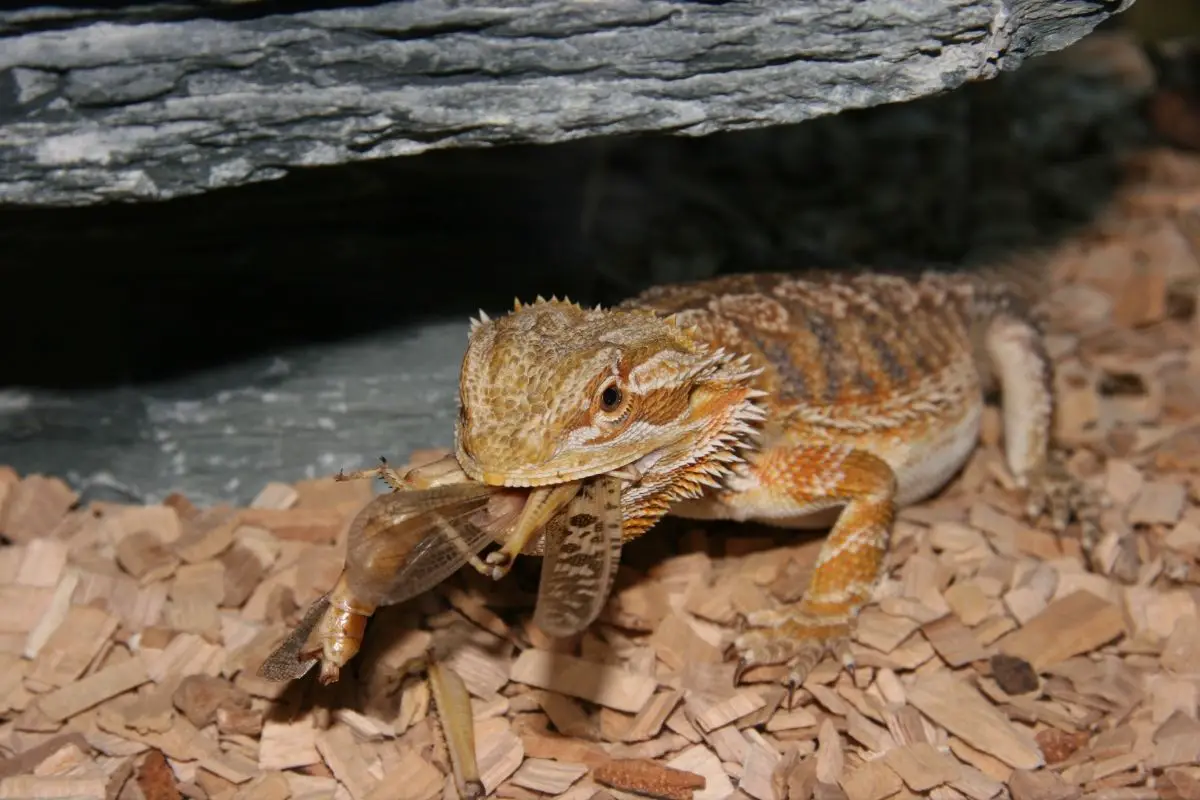Bearded dragons are one of the most popular pets in Australia. They can be found at reptile stores and pet shops all over the country.
It is usually possible to purchase a bearded dragon as an adult or juvenile, and they come with instructions on how to care for them.

However, it is important that you read these instructions carefully to ensure that your new pet has what he needs to live happy and healthy.
If you have a bearded dragon in a cage, then you will probably notice that he is not moving around much. This could mean that he is simply resting and not hiding.
Resting is necessary for reptiles because their bodies require more energy than humans do. For this reason, reptiles often look lethargic when they first arrive.
If you take him outside his enclosure and let him roam around, he may start to move more freely. He may also become active if he feels threatened.
Some people think that bearded dragons are lazy and don’t like exercising. In fact, bearded dragons love to exercise! They enjoy running around, climbing trees, and jumping into water bowls.
When they are outdoors, they can climb up onto branches and even jump off of cliffs. If you don’t allow them to run around, they will just curl up inside their cages and wait until you release them.
Hiding Behaviors Of Bearded Dragons
Hiding behavior is common among bearded dragons. The lizard will hide when he senses danger. You might see this behavior if you leave your bearded dragon alone in his cage for a few days and suddenly hear him make a noise that sounds like a baby crying.
Some bearded dragons also huddle together under objects such as logs and rocks. These behaviors indicate that your bearded dragon is feeling stressed or overwhelmed by something in his environment. He does not want to be disturbed.
When a bearded dragon is hiding, there shouldn’t be anything to worry about. These behaviors are pretty normal to some extent.
However, there may be cases when hiding could be a sign of something else. If you notice your bearded dragon acting unusually, it’s always a good idea to make an appointment with the vet.
Hiding To Feel Safe
Your bearded dragon might be hiding in order to feel safe. Sometimes, bearded dragons are startled by loud noises.
If you turn on your television, radio or stereo while your bearded dragon is sleeping, he may wake up and get scared. To avoid this problem, try turning down the volume on your electronics before bedtime.
Another way that bearded dragons can feel unsafe is if they sense that someone is approaching.
If you leave your bearded dragon unattended in your house, he may decide to hide under furniture so that he doesn’t have to face anyone.
This type of behavior is common among lizards. They typically use a different area of the home to hide in.
Brumation is also associated with safety. What is brumation? Brumation is the time that these animals hibernate in their natural habitats. It is a natural cycle that repeats itself every time fall and winter approaches.
Although this doesn’t always happen with pet dragons, it can still happen when it gets colder. Your lizard may be hiding as it goes into brumation.
Once again, they will hide during this time so that they feel safe.
If you notice your bearded dragon waking up, drinking, and doing everything they need to do in order to survive, don’t worry.
As long as your lizard is taking care of themselves, despite going back to sleep, you have nothing to worry about. You can pin this behavior down to brumation.
To Get Away From The Heat
Another reason your bearded dragon could be hiding would be to get away from the heat. Like any creature, when it gets too hot, shade is the best option.
A bearded dragon likes to find shade whenever temperatures get too high. If you live in a place where the temperature often reaches 100 degrees Fahrenheit, you should provide your bearded dragon with plenty of shade.
If you notice that your bearded dragon has been hiding out in a shaded area, you should give it plenty of space to move around. Don’t force him out of his hiding spot unless you’re absolutely sure that he wants to come out.
If you see your bearded dragon hiding in a shaded area because it’s getting too hot, don’t panic! Just remember that reptiles are designed to work at temperatures between 68-96 degrees Fahrenheit.
If your lizard is being forced to go outside in extreme conditions, you may need to consider moving your bearded dragon to a cooler location.
They Want To Avoid Other Dragons
If you have more than one lovely bearded dragon, one of them might feel threatened by the other. By keeping more than one dragon in the enclosure, one or both dragons could get uncomfortable.
Lizards usually prefer to stay alone. When they’re alone, they tend to not bother each other. However,
sometimes two or three lizards end up living together in an enclosure. This has the potential to create tension among them.
The only solution for this situation is to separate the dragons. If you want to keep your bearded dragons together, but you want to prevent them from fighting, you’ll need to buy another enclosure.
It is very important for all your bearded dragons to be happy and comfortable in their homes. They cannot do this if they feel intimidated by their housemates.

They Feel Stressed Or Sick
Stress and sickness can both result in your bearded dragon hiding. Finding a hiding spot is the natural instinct of most, if not all reptiles, when they are not feeling well.
If you suspect that your dragon is sick, it would be a good idea to make an appointment with your vet.
By hiding for too long, you risk your dragon feeling worse. They might not be eating or drinking, or even getting enough light.
If you want them to stay healthy and happy, ensure that your pet is in good health.
Similarly, your dragon could be stressed.
If you want to try to figure out if your bearded dragon is stressed, you can look out for the following symptoms:
They are less active
They have changed their diet or diet habits
They aren’t spending time in the light
They are exhibiting unusual and frantic behavior
They have or are changing color
They are less active
If you notice any of these symptoms, you should figure out what the issue is. Some common reasons for stress in bearded dragons include:
Improper diet
Their environment is noisy
There are other dragons in their terrarium
Improper terrarium setup
They are new pets
Their environment is dirty
They are bored
Their terrarium is too small
Your Bearded Dragon’s Hide
Your bearded dragon’s hide is an important place for them. Because of this, you need to make sure that you have the perfect one for your reptile.
This is one of the most essential things you will need in your terrarium, and it needs to be there from the moment you get your pet. They must always have a safe space to go.
What Kind Of Hide Is Right For Them?
There are many hides you can get at your local pet store. Many of them will look like rocks, caves, or maybe even logs.
However, you can also make your own hide for your bearded dragon at home, if you like. You don’t necessarily have to use wood, as some people recommend.
As long as the hide is large enough for your dragon to stay in comfortably, it can be anything. A few options include:
An old bowl with a cut-out area for a door
A DIY wooden box
A store bought hide
You should also be mindful of where the hide is in the terrarium. It should be in a corner where there is no foot traffic passing by.
If you were to pick a busy, and very visible spot, there would be no point in having the hide there at all.
Making Sure They Get Enough Light
It’s important to note that your bearded dragon needs to be getting enough light, even if they are spending a lot of time in their hide.
In most cases, the dragon will pick their times when they sunbathe. However, if you notice that you are never seeing your dragon leave its hide, call the vet.
If your dragon doesn’t get enough light, they could become ill. If this happens, you will need to call your vet anyway, so it’s best to avoid the problem altogether.

Final Thoughts
Bearded dragons can be fun little creatures, but they also have needs. It’s crucial to ensure that they get enough light, and stay healthy and happy.
If you notice that your bearded dragon is sick or unhappy, you should contact a professional immediately. If you can recognize issues early on, they will be much easier to deal with, and you can save a lot of money.
Just remember – you need to always ensure that your bearded dragon is happy and feels safe in their home. It doesn’t matter how old they are, they need to have a hide.
Always make sure that you do your research before getting any pet, including a bearded dragon!
FAQ
What Is The Purpose Of A Hide In A Terrarium?
A hide provides safety and comfort. The main goal of a hide is to give your bearded dragon somewhere comfortable to live. They want to feel safe, and not be afraid of something coming over and eating them.
The hide provides them with safety, while giving them a place to relax and sleep. It’s often recommended that you keep your bearded dragon in a cave/hide, rather than just using a rock.
Do Bearded Dragons Need A Hide In Their Terrarium?
Yes, bearded dragons need to have a hide in their terrarium.
What Can I Use As A Hide In A Terrarium?
Any type of hide will work fine. Some people suggest using a log, or perhaps even making a cave out of clay. Whatever works for you, is what you should choose.
How Big Should My Bearded Dragon’s Hide Be?
The hide should be big enough for the whole bearded dragon to fit in.
Where Should I Put A Hide In My Bearded Dragon’s Terrarium?
The hide should be placed somewhere that gets no foot traffic past it. A quiet corner of the terrarium is ideal. No one should be able to see inside the terrarium to disturb the bearded dragon.
